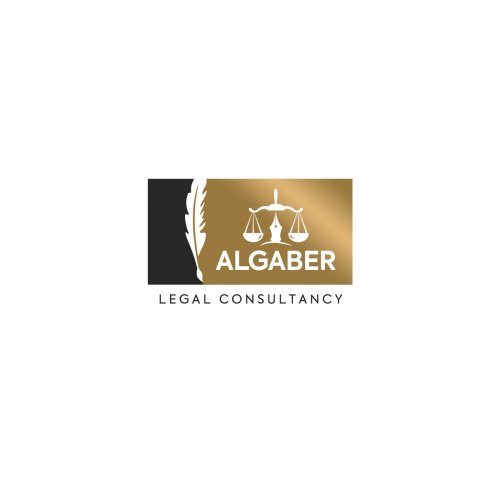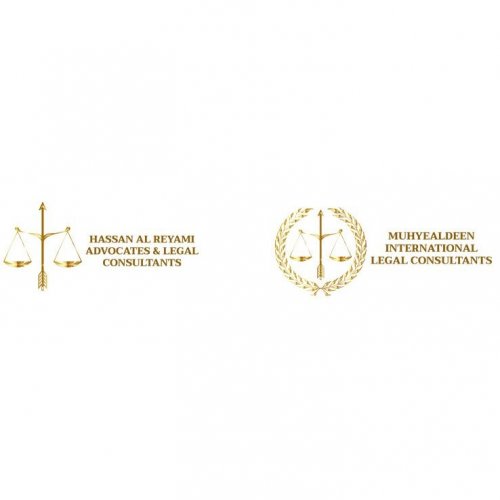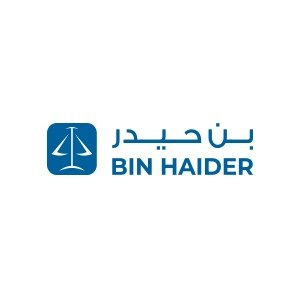Best Renewable & Alternative Energy Lawyers in United Arab Emirates
Share your needs with us, get contacted by law firms.
Free. Takes 2 min.
Or refine your search by selecting a city:
List of the best lawyers in United Arab Emirates
About Renewable & Alternative Energy Law in United Arab Emirates
Renewable and alternative energy refers to the production and use of energy derived from naturally replenishing sources, such as sunlight, wind, and geothermal heat. In the United Arab Emirates, this field has gained significant attention due to the country's commitment to diversifying its economy and promoting sustainable development. While known primarily as an oil and gas exporter, the UAE is now a regional leader in green energy initiatives. Prominent projects like the Mohammed bin Rashid Al Maktoum Solar Park and Masdar City highlight the UAE's vision for a future less dependent on hydrocarbons. To support these ambitions, the UAE has established a framework of laws and regulations specifically tailored to the development, regulation, investment, and operation of renewable energy projects throughout the country.
Why You May Need a Lawyer
Renewable and alternative energy projects are complex undertakings that involve a range of legal, regulatory, and commercial considerations. Individuals and companies may require legal assistance in various situations, such as:
- Negotiating and drafting power purchase agreements or project contracts
- Navigating licensing and permitting processes from relevant authorities
- Understanding land use and zoning requirements for energy installations
- Ensuring compliance with environmental legislation and government policies
- Managing investment partnerships and joint ventures
- Resolving disputes arising during project development or operation
- Obtaining government incentives and subsidies for renewable projects
- Handling cross-border energy trade and export issues
- Protecting intellectual property related to new renewable technologies
- Advising on taxation and customs implications of importing technology and equipment
Experienced legal advice can ensure the smooth and compliant operation of your renewable energy interests, whether you are a developer, investor, landowner, technology provider, or energy consumer.
Local Laws Overview
The UAE governs renewable and alternative energy through a combination of federal laws and emirate-level regulations. Key developments include:
- Federal Laws and Policies: The UAE Energy Strategy 2050 provides a national roadmap for increasing the share of clean energy to 50 percent of the total energy mix by 2050. The country has adopted regulations for independent power producers and established laws to encourage private sector participation in green energy projects.
- Emirate-Level Initiatives: Each emirate, especially Dubai and Abu Dhabi, has its own regulatory authority and sustainability projects. The Dubai Clean Energy Strategy 2050 and the Abu Dhabi Department of Energy both play major roles in project licensing and oversight.
- Permits and Licensing: Renewable energy projects typically require a range of permits related to land use, construction, grid connection, and environmental impact. Authorities such as the Dubai Electricity and Water Authority (DEWA) and Abu Dhabi Department of Municipalities and Transport provide detailed guidelines for applicants.
- Investment and Subsidies: Policies exist to attract foreign and domestic investment into the renewable sector, such as tax incentives, customs duty exemptions for certain technologies, and guaranteed purchase agreements for solar and wind energy.
- International Agreements: The UAE is a signatory to various international environmental conventions and hosts the International Renewable Energy Agency (IRENA) in Abu Dhabi, reinforcing the country’s commitment to global sustainability efforts.
Frequently Asked Questions
What types of renewable energy projects are allowed in the UAE?
The UAE supports various renewable energy projects, including solar photovoltaic, solar thermal, wind, and waste-to-energy initiatives. The most common and widely developed are large scale solar parks, but small-scale rooftop solar projects are also permitted with proper licensing.
Can foreign investors own renewable energy projects in the UAE?
Yes, foreign ownership is permitted in many free zones, and joint ventures with local entities are common outside these zones. Recent legal reforms have expanded foreign ownership rights in many economic sectors, including renewable energy.
Are there government incentives for renewable energy development?
The government offers various forms of support, such as feed-in tariffs, duty exemptions for equipment, guaranteed off-take agreements, and access to green financing channels for eligible projects.
What permits are required to start a renewable energy project?
Typically, approvals are needed from local municipal authorities for land use, environmental agencies for impact assessments, and energy regulators for connection to the national grid. Specific requirements depend on the emirate and project size.
Are there restrictions on the import of renewable energy equipment?
While the UAE imports most renewable energy technology, some regulations apply concerning standards, certification, and customs duties. Exemptions may apply for certified equipment dedicated to green energy projects.
How does net metering work in the UAE?
Net metering allows consumers who generate their own renewable energy, such as through rooftop solar panels, to sell unused electricity back to the grid. Dubai and Abu Dhabi both have net metering programs with specific technical and administrative requirements.
What are the environmental requirements for renewable energy projects?
All projects must comply with UAE environmental laws, which mandate environmental impact assessments and measures to mitigate negative effects on local ecosystems, land, and air quality.
Can individuals or businesses install solar panels on their property?
Yes, both individuals and businesses can install solar panels, subject to obtaining proper permits and following safety and technical standards set by the emirate’s relevant authorities, such as DEWA’s Shams Dubai initiative.
What are the main challenges in renewable energy project development?
Challenges include navigating the permitting process, meeting technical standards, securing land or rooftop permissions, arranging financing, and ensuring ongoing compliance with changing regulations.
Do I need a lawyer to start a renewable energy project in the UAE?
While not legally required, involving a lawyer at early stages can help avoid legal obstacles, draft compliant contracts, and navigate the complex regulatory landscape, saving time and reducing risk.
Additional Resources
- UAE Ministry of Climate Change and Environment - for environmental permits and sustainability initiatives
- Dubai Electricity and Water Authority (DEWA) - for licensing, net metering, and grid connection in Dubai
- Abu Dhabi Department of Energy - for policies, regulations, and energy market updates
- Masdar - Abu Dhabi’s sustainable development and renewable energy company
- International Renewable Energy Agency (IRENA) - headquartered in Abu Dhabi for international guidelines and best practices
- UAE Energy Strategy 2050 public reports - for national policy updates
- Local law firms with dedicated renewable and environmental law practices
Next Steps
If you are planning to engage in a renewable or alternative energy project in the United Arab Emirates, consider taking the following actions:
- Clarify your project objectives and identify possible legal and regulatory hurdles early
- Consult a qualified lawyer experienced in UAE renewable energy law to advise on compliance and best practices
- Gather all relevant paperwork, such as ownership documents, technical proposals, and initial feasibility studies
- Engage with the relevant authorities in your emirate to understand the permitting and approval process
- Review available incentives and funding opportunities that could apply to your project
- Monitor ongoing policy changes and regulatory updates that may impact project development or operation
Taking these steps with legal guidance can increase the likelihood of a smooth, successful, and compliant renewable energy venture in the UAE.
Lawzana helps you find the best lawyers and law firms in United Arab Emirates through a curated and pre-screened list of qualified legal professionals. Our platform offers rankings and detailed profiles of attorneys and law firms, allowing you to compare based on practice areas, including Renewable & Alternative Energy, experience, and client feedback.
Each profile includes a description of the firm's areas of practice, client reviews, team members and partners, year of establishment, spoken languages, office locations, contact information, social media presence, and any published articles or resources. Most firms on our platform speak English and are experienced in both local and international legal matters.
Get a quote from top-rated law firms in United Arab Emirates — quickly, securely, and without unnecessary hassle.
Disclaimer:
The information provided on this page is for general informational purposes only and does not constitute legal advice. While we strive to ensure the accuracy and relevance of the content, legal information may change over time, and interpretations of the law can vary. You should always consult with a qualified legal professional for advice specific to your situation.
We disclaim all liability for actions taken or not taken based on the content of this page. If you believe any information is incorrect or outdated, please contact us, and we will review and update it where appropriate.
Browse renewable & alternative energy law firms by city in United Arab Emirates
Refine your search by selecting a city.

















